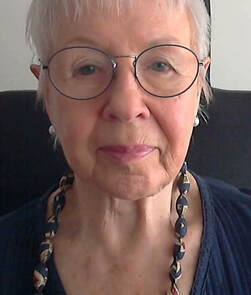|
The Beggar A sharp wind makes me pull down my hat, tighten my coat. "Bloody freezing, innit." He has no gloves. His blue swollen fingers barely close around the cup which rattles in response to the few coins I let drop. "Thanks, mate." He huddles a little deeper into the recess by the bank’s cash machine. "They should move them on. Bring the neighbourhood down." I turn. The owner of the complaint is tall, blonde, sheep-skinned, with tell-tale signs of trying to stem the tide of aging. I suddenly feel guilty by association. Because I gave him so little? Because I gave at all? Because I smiled at her? We Didn’t Know We Were Poor Sometimes we went hungry, but not much. Mother made dandelion salad and stingy- nettle soup. Potatoes and carrots in water with salt. Mother had been on the train again to visit farmer Ruttenberger. Left our last silver flatware with his wife. Brought back a big sack of rye. Can see her still, her too large dress, her apron, the coffee machine between her thighs, milling. Everyone was the same. You don’t notice if you have nothing to compare yourself to. My scary aunt with the deep voice and a wart on her chin would send us into the woods: ‘Don’t you go eating the blueberries now. Bring them home, you hear? I need them for jam making.’ There was a place near the brook, where the world smelled of woodruff and ceps, where bluebells announced our indelicate approach. Getting back empty-handed, round-eyed and honest-to-god we hadn’t found even one, my aunt wiped blue-purple stains from our guilty faces while winking at my mother. My uncle is looking for his cat with a darkening face. ‘I’ll find out who ate her!’ When I was Six I remember the smell of earth after summer rain, the high grass hiding me. It tickled, pinched and stung. I followed the activities of beetles, caterpillars and assorted small life. Rolled myself packages of sorrel; chewing them despite the acid was the challenge. Being hungry helped. The lark slowly climbed into blue. Became a small black dot, trilling ecstatically. My summer vision was framed by green stalks of long grasses and their seeds. Standing on a milestone I saw the fields covered in shimmering heat, warping invisible air. Cornflowers and poppies between sandy-yellow wheat. There would be a good harvest. Yes, even then I knew about harvests, watched the sweating man and their flails. Sometimes I’d take home a pocket-full of grains. Mother wiped my face, hands, knees. My feet permanently calloused. The grains ground in the coffee mill held firm between mother’s legs. That last summer before next May when strange men came in planes, tanks, and jeeps, I watched André riding the brown back, his face lit by the evening sun, watched the oxen pulling carts, watched the plow grooving black furrows for the autumn field, watched the swarms of mosquitoes dance over the stagnant pond and fell in love.  Rose Mary Boehm is a German-born British national living and writing in Lima, Peru, and author of two novels as well as seven poetry collections. Her poetry has been published widely in mostly US poetry reviews (online and print). She was twice nominated for a ‘Pushcart’, once for ‘Best of Net’. www.rose-mary-boehm-poet.com
0 Comments
Leave a Reply. |
AuthorsYou can find poets' names under Categories Archives
April 2024
Poets
All
|
 RSS Feed
RSS Feed